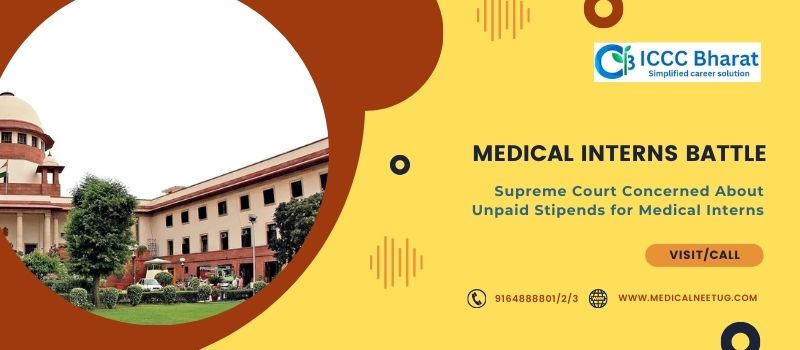In a significant move, the Supreme Court of India, led by Justices Sudhanshu Dhulia and Prasanna B Varale, recently addressed a longstanding grievance of MBBS interns concerning the lack of adequate stipends from medical colleges. This action came to light through writ petitions filed by medical students, underlining the judiciary’s active role in advocating for fair compensation in the medical education sector.
The heart of the matter lies in the complaints lodged by MBBS interns over the insufficiency of stipend payments by medical colleges. The interns, despite being an integral part of the healthcare delivery system during their internship period, found themselves financially unrewarded, a situation exacerbated by the colleges’ insistence on hefty tuition fees. Justice Dhulia, vocal about the discrepancy, argued that colleges have a binary choice: either ensure the payment of stipends to interns or abstain from offering internships altogether.
This issue is not isolated but reflects a broader concern previously highlighted by the Supreme Court. The court had already issued directives to the National Medical Commission (NMC) to investigate and resolve reports indicating that a staggering 70 percent of medical colleges failed to disburse stipends to their MBBS interns. The Army College of Medical Sciences (ACMS) emerged as a specific case in point, with the court having to intervene directly to mandate the payment of stipends to its interns, who had been unpaid since their joining in April, only receiving stipends from October onwards.
Senior Advocate Colonel (Retired) R Balasubramanium, representing ACMS, contended that the college operates independently, without direct government or military funding, hinting at financial constraints as a possible reason for the delayed stipends. However, the court’s directive was clear: ACMS must expedite the payment process, reinforcing the principle that interns deserve to be compensated for their contributions.
Moreover, the Supreme Court expressed its concern over the NMC’s adherence to its directives aimed at ensuring stipend payments across the board. The court pointed out inconsistencies between reported state responses and the actual situation on the ground, indicating a gap in compliance and implementation.
The case has been adjourned for further submissions and has been tagged alongside similar petitions, including those filed by foreign medical graduates facing non-payment of stipends. This collective judicial scrutiny underscores a pivotal moment in addressing the financial challenges faced by MBBS interns in India, potentially setting a precedent for how medical education institutions treat their interns moving forward.
This judicial intervention by the Supreme Court marks a crucial step towards rectifying the imbalance between the financial burdens imposed on medical students and the lack of compensatory stipends for their indispensable service during their internship period. As the case progresses, it will be interesting to see how this decision influences the policies of medical colleges across the country and the actions of the NMC in enforcing these directives.
